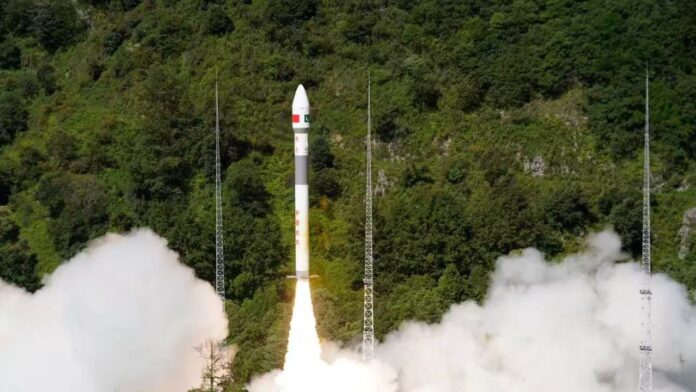In a significant move towards technological self-reliance, Pakistan successfully launched its Remote Sensing Satellite from the Xichang Satellite Launch Center (XSLC) in China on Thursday. This launch marks a major milestone in Pakistan’s space journey and strengthens the country’s capabilities in Earth observation.
The project is the result of a strategic partnership between the Pakistan Space and Upper Atmosphere Research Commission (SUPARCO), China Electronics Technology Group Corporation (CETC), and MICROSAT China.
The satellite, equipped with advanced imaging technology, will play a vital role in urban planning, precision agriculture, disaster management, environmental protection, and food security.
The satellite is expected to help track deforestation, glacier recession, and climate change, as well as improve the management of water resources and agricultural land.
Additionally, it will support infrastructure monitoring, map transportation networks, and aid in regional planning, especially in relation to national projects such as the China-Pakistan Economic Corridor (CPEC). It is also designed to identify geohazard risks and provide timely warnings for natural disasters like floods, earthquakes, and landslides.
Federal Minister for Planning, Development, and Special Initiatives Ahsan Iqbal congratulated the nation on the successful launch and praised the team at SUPARCO, including its engineers and scientists, for their hard work. “We are deeply grateful to China for its unwavering support and cooperation in this project,” Iqbal said.
He confirmed that the satellite has successfully entered its designated orbit and will soon start providing critical data for national use. “We are committed to restoring Pakistan’s leadership in space technology. With China’s help, we plan to send a Pakistani astronaut into space next year. By 2035, we aim to complete our lunar mission and land on the moon,” Iqbal added.
SUPARCO Chairman Mohammad Yousaf Khan stated that the launch lays the foundation for an integrated Earth Observation System that will serve Pakistan’s national priorities and contribute significantly to the country’s sustainable socio-economic development.




